The Fusion Energy Sciences (FES) program has two goals: (1) expand the understanding of matter at very high temperatures and densities, and (2) build the knowledge needed to develop a fusion energy source. Providing energy from fusion is one of the 14 Grand Challenges for Engineering in the 21st Century and FES is the largest federal government supporter of research that is addressing the remaining obstacles to overcoming this challenge.
Plasmas are very hot gases, so hot that electrons have been freed from atomic nuclei, forming a collection of ions and electrons that can be controlled by electric and magnetic fields. The known universe consists of over 99% plasma, which form stars such as the sun. Scientist study plasmas in space, like star explosions, to better understand plasma physics. Scientist also study plasmas that occur on Earth, like lightning. There are also plasmas that are manufactured and are seen everywhere, like light bulbs and a store’s neon sign. There are plasmas that have practical applications, such as advanced medical and sanitation procedures. However, there are challenges in creating and sustaining plasmas on Earth.
The sun produces light and energy that everyone can see and feel. It does this by a process called fusion. Fusion occurs in a plasma where two nuclei are combined to form a new atom. This occurs many times in the sun generating an enormous amount of energy. Scientist now want to recreate the process here on Earth and collect the energy to make electricity. The promise and potential benefits to humankind from this carbon-free energy source are enormous. Achieving this goal would have far-reaching and significant effects on human civilization and its impact on the planet.
Together with its partner science agencies, FES supports a devoted workforce that has made impressive progress since the first fusion experiments over sixty years ago. Progress is made each day by scientists and engineers at DOE national laboratories, universities, and in private industry. With public financial support for this fundamental research, fusion scientists are undertaking fundamental tests of fusion energy’s viability using some of the most ambitious energy projects, the most powerful supercomputers, and the fastest networks in the world today.
Video
FES Program Announcements
FES Science Highlights
-
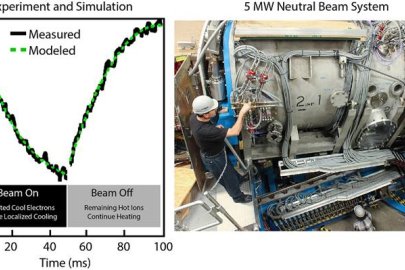 Study finds that neutral beam performance can be experimentally deduced from electron temperature evolution during neutral beam injection.October 23, 2024
Study finds that neutral beam performance can be experimentally deduced from electron temperature evolution during neutral beam injection.October 23, 2024 -
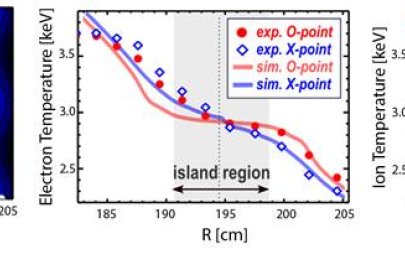 The first measurement of ion temperature in magnetic islands identified a steep gradient, providing insights for improving plasma confinement in tokamaks.October 15, 2024
The first measurement of ion temperature in magnetic islands identified a steep gradient, providing insights for improving plasma confinement in tokamaks.October 15, 2024 -
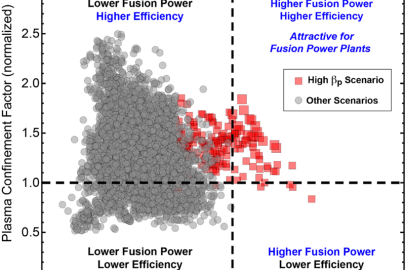 By achieving very high density and confinement quality at the same time, researchers make new strides toward fusion energy.July 31, 2024
By achieving very high density and confinement quality at the same time, researchers make new strides toward fusion energy.July 31, 2024 -
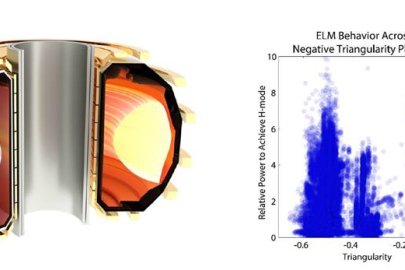 Plasmas with negative triangularity show reduced gradients that develop into instabilities, including under conditions relevant to fusion power plants.March 11, 2024
Plasmas with negative triangularity show reduced gradients that develop into instabilities, including under conditions relevant to fusion power plants.March 11, 2024 -
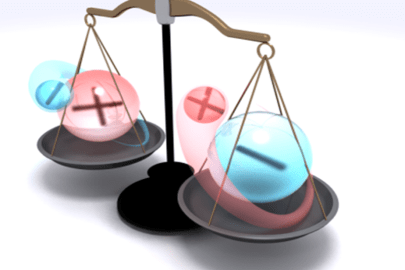 Settling a long-standing question, scientists have proven that antihydrogen falls downward in a first-ever direct experiment.January 29, 2024
Settling a long-standing question, scientists have proven that antihydrogen falls downward in a first-ever direct experiment.January 29, 2024 -
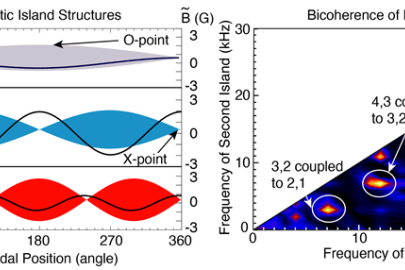 Small rotating magnetic islands in tokamaks flowing at the same speed can couple together to cause disruptive islands that reduce plasma confinement.January 24, 2024
Small rotating magnetic islands in tokamaks flowing at the same speed can couple together to cause disruptive islands that reduce plasma confinement.January 24, 2024 -
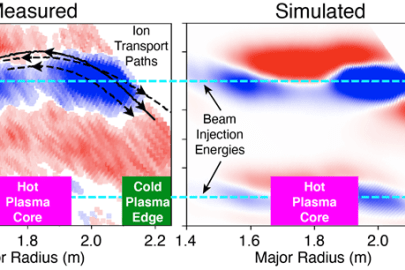 For the first time, scientists successfully track energetic ion flow through space and energy driven by electromagnetic waves in fusion plasmas.January 11, 2024
For the first time, scientists successfully track energetic ion flow through space and energy driven by electromagnetic waves in fusion plasmas.January 11, 2024 -
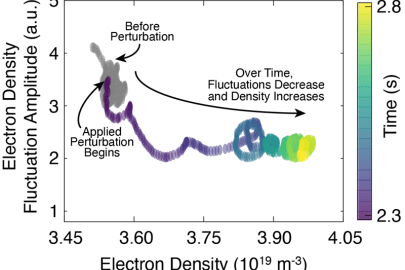 Perturbing the edge magnetic field of a tokamak produces a counterintuitive response: particles entering the confined region rather than escaping it.January 2, 2024
Perturbing the edge magnetic field of a tokamak produces a counterintuitive response: particles entering the confined region rather than escaping it.January 2, 2024 -
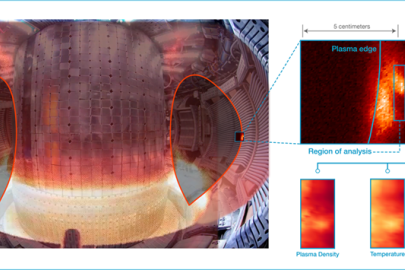 Neural networks guided by physics are creating new ways to observe the complexities of plasmas.December 13, 2023
Neural networks guided by physics are creating new ways to observe the complexities of plasmas.December 13, 2023 -
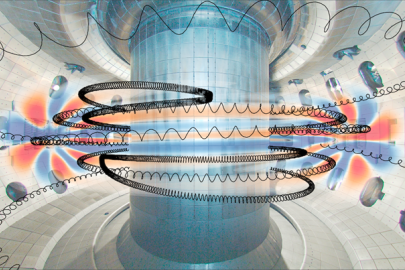 Computation and simulations show that different types of collisions compete to determine the way energy is transferred between particles and plasma waves.December 4, 2023
Computation and simulations show that different types of collisions compete to determine the way energy is transferred between particles and plasma waves.December 4, 2023
FES Subprograms
FES Research Resources
Contact Information
Fusion Energy Sciences
U.S. Department of Energy
Germantown Building
1000 Independence Avenue., SW
Washington, DC 20585
P: (301) 903 - 4941
F: (301) 903 - 8584
E: [email protected]





